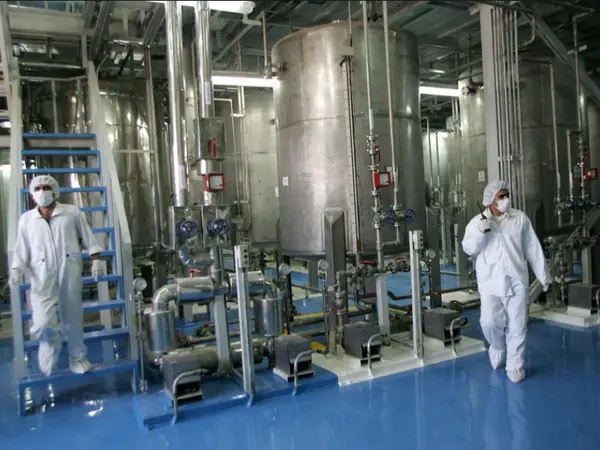Contradictory news on Friday surrounding Iran’s nuclear talks set Iranian pundits at home or abroad racing to make sense of what was really happening in Vienna.
News emerged on Friday that Iran was accepting to continue talks based on earlier understanding reached in June, while media in Iran insisted that Tehran stands firm on its new demands.
Analysts in Iran began mentioning that Tehran sees the nuclear negotiations as an issue of lifting sanctions, while it has truned in to a security problem for the world.
An Iranian analyst in Germany, Mehran Barati told the Iran International TV Friday that this could be a negotiating tactic by the Iranian delegation to say that they accept the June 20 draft agreement but have some new additions. These include demands for a continued commitment to the JCPOA by the United States, and verification of US promises, before returning to its commitments under the JCPOA.
Barati said that in the June agreement the United States had accepted to lift 94 percent of the sanctions it has imposed on Iran since 2018 when it withdrew from the JCPOA. The remaining 6 percent was about sanctions related to terrorism and human rights violation and affect Iranian leaders. Barati added that from a legal point of view, the United States cannot lift those sanctions.
He also noted that the Islamic Republic's Supreme Leader Ali Khamenei makes all the decisions about the negotiations and President Ebrahim Raisi and Foreign Minister Hossein Amir-Abdollahian cannot intervene in the matter while Khamenei continues the talks using his relative Ali Bagheri Kani as his proxy.
In the meantime, the Iranian administration-linked semi-official news agency ISNA on Thursday summed up views expressed by Iranian analysts and experts on the future of the Vienna talks after pundits discussed the matter on the audio chat application Clubhouse on Tuesday.
According to ISNA, a foreign policy analyst Ali Montazeri summarized Iran's mistakes in nuclear negotiations during the past 20 years. He said that some domestic political disputes between President Ahmadinejad and then-security chief Ali Larijani also led to the failure of the talks in early 2010s. Montazeri also said that Iranians are frustrated by the high cost of prolonged negotiations that have not solved the country's problems.
Nuclear policy analyst Foad Sadeghi said that during the past 20 years the nuclear talks have been the country's main challenge. "We have paid a high price for it and yet, we are once again at the intersection trying to decide whether to return to our commitments under the JCPOA or to face further sanctions and UN Security Council resolutions." He also said, "Most of what we think are our leverage and bargaining chips, are in fact not justifiable and work against us."
Former diplomat Ghasem Mohebali said that Iran's nuclear program has become too costly for the nation while no one is still able to benefit from it as it has been turned into a security issue against the country. He said until 2009, domestic discussion about the nuclear issue was whether Iran should surrender to the West's demands without anything in return. After that, the problem changed to surrendering to the West's demands for sanctions relief. He said it was a mistake to portray a security problem as an economic challenge. The fact that the JCPOA says that after eight years Iran's nuclear program will be peaceful means that the world has initially perceived Iran's nuclear program as a hostile program.
Another former diplomat Javid Ghorbanoghlou said in the Clubhouse debate: "Iran has never had a defined nuclear strategy backed by the people. This was the main reason why it has been turned into a security issue."
